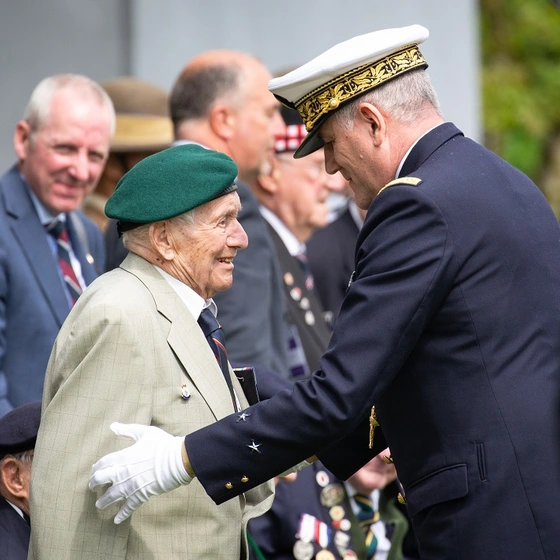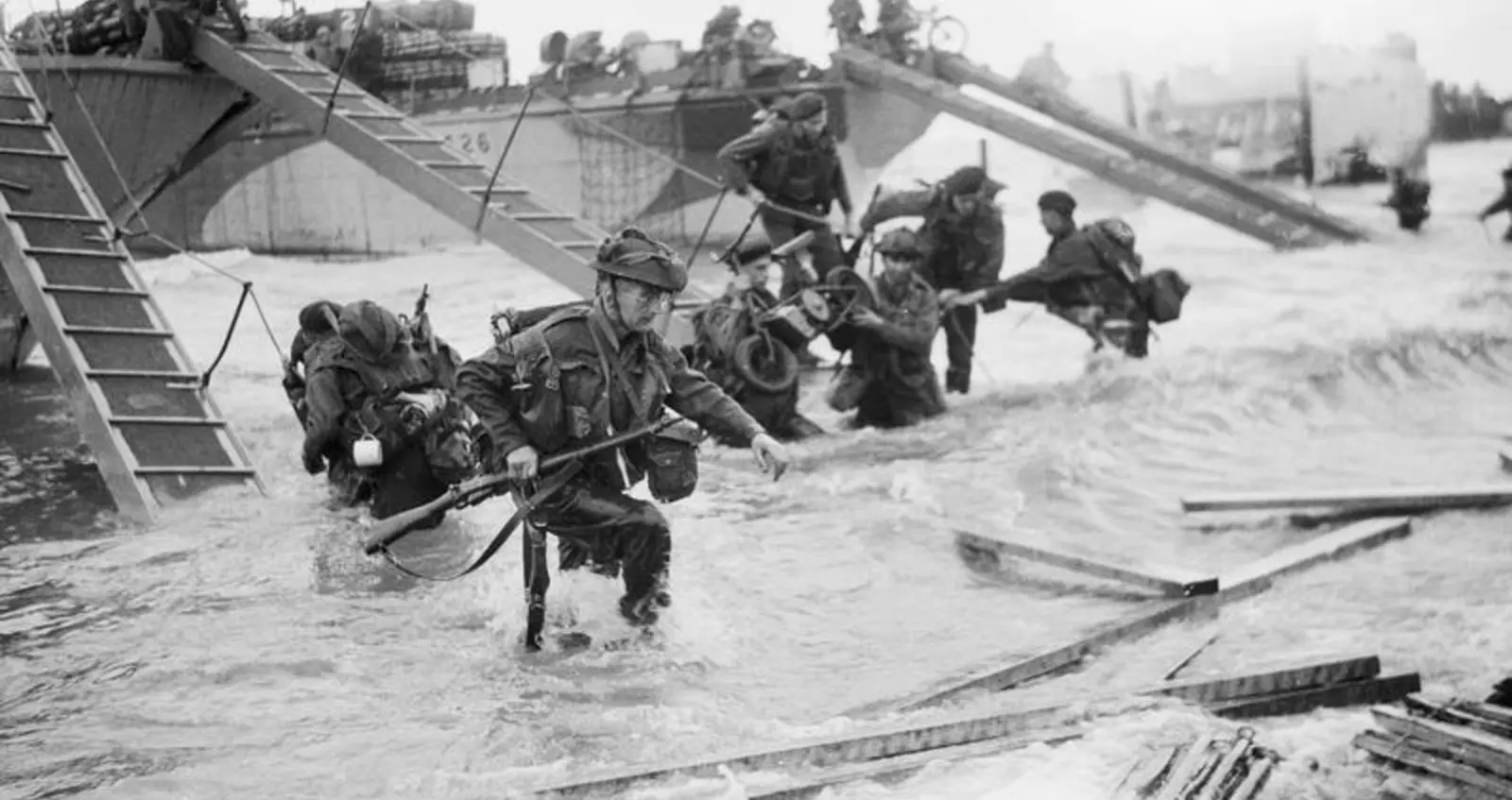Remembering D-Day and the Battle of Normandy
The D-Day landings of 6 June 1944 was the largest seaborne invasion in history. Along with the associated airborne operations, it marked the beginning of the liberation of France and western Europe.
D-Day 81 events
There will be a number of events taking place in Normandy to mark the 81st Anniversary of the D-Day Landings.
Service of Commemoration at Bayeux Cemetery
- Date: Friday 6th June
- Time: 12pm
- Location: Boulevard Fabian Ware, 14400 Bayeux
On Friday 6th June, the Royal British Legion and Commonwealth War Graves Commission will hold a Service of Commemoration at Bayeux War Cemetery to commemorate the 81st Anniversary of the D-Day Landings.
We welcome the general public and members of the town of Bayeux to watch. Seats will be reserved for invited guests. Any available seats will be offered on a first come first served basis. If you have cannot stand for a long period of time, please speak to a member of our team onsite to assist you.
The service will be held with the support of the Prefecture of the Calvados and the Town of Bayeux.
Service of Thanksgiving at Bayeux Cathedral
- Date: Thursday 5th June
- Time: 5pm
- Location: Bayeux Cathedral, Rue du Bienvenu, 14400 Bayeux
On Thursday 5th June, The Commonwealth War Graves Commission will be holding a Service of Thanksgiving at Bayeux Cathedral to commemorate the 81st Anniversary of the D-Day Landings.
A number of seats are reserved for invited guests. The general public are welcome to take part. Capacity will be limited and seats will be offered on a first come first served basis.
The service will be held with the support of the Prefecture of the Calvados, the Town of Bayeux and the Diocese of Bayeux-Lisieux.
Service of Remembrance at the British Normandy Memorial
- Date: Friday 6th June
- Time: 10:30am - 11:10am (local time)
- Location: The British Normandy Memorial, 14114 Ver-sur-Mer
On Friday 6th June, The Spirit of Normandy Trust will be holding a Service of Remembrance with a number of Normandy Veterans at the British Normandy Memorial in Ver-sur-Mer.
A small number of seats are reserved for Veterans and invited guests. The public are invited to attend and should register in advance via the Spirit of Normandy Trust & British Normandy Trust Commemoration registration page.
There will be very limited seating for members of the public. The Winston Churchill Centre, with two galleries and a café, will be open throughout the day.

Commemorating D-Day 80
We have created resources to help our members and supporters commemorate D-Day 80 and other battles of 1944. We want people to make meaningful connections and celebrate the legacy of the whole D-Day generation.
About D-Day
Unprecedented coordination between Allied nations, and the intensive planning of engineers, meteorologists, logisticians and countless more, led to a force from 13 countries approaching Normandy in a 5,000-vessel armada.
In the early hours of D-Day, 24,000 paratroopers and glider-borne troops landed behind German lines to provide tactical support. Massive naval and aerial bombardments attempted to supress the German defences and weaponry.
Then a ground force of more than 130,000 troops came ashore on five beaches across a 50-mile stretch of Normandy coast, with the first waves often facing intact defences.
By the end of D-Day there had been 10,000 allied casualties. Yet this was only the beginning.
The ensuing Battle of Normandy was to last into August and cost tens of thousands of lives as it defeated and repulsed the occupying German forces eastwards. It was a decisive success for the Allies and paved the way for the liberation of much of north west Europe.


